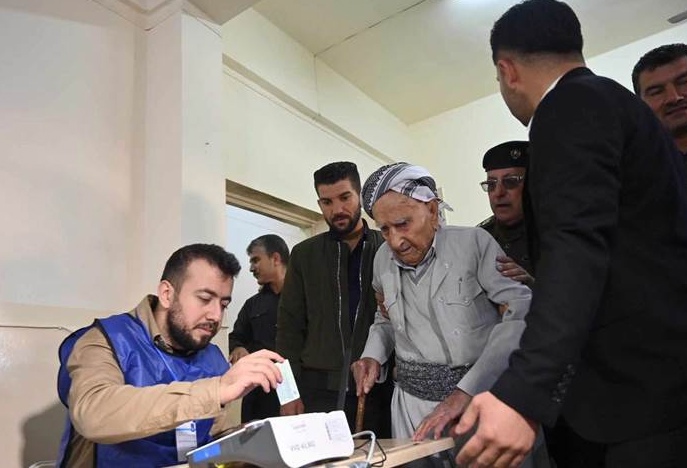Iraq’s Independent High Electoral Commission (IHEC) announced on Thursday the final results of provincial elections held in 15 of the country’s 18 provinces, excluding three provinces in the semi-autonomous Kurdistan Region.
The Nabni Coalition, led by Hadi al-Ameri, leader of the Badr Organization affiliated with the Hashd Shaabi forces, emerged as the frontrunner after winning 43 seats in ten provinces, including Baghdad.
The State of Law Coalition, led by former Prime Minister Nuri al-Maliki, won 35 seats. The Sunni alliance, known as Taqaddum (progress), headed by the sacked parliament speaker Mohammed al-Halbousi, won 21 seats in five provinces. The elections were boycotted by the Shiite opposition Sadrist movement.
The commission said there were no complaints about the election results, adding that the final results could be appealed.
More than 5,900 candidates from various parties and alliances vied for 275 posts. More than 6 million out of 16 million voters took part in the local elections. The governorate councils in Iraq serve as the legislative and supervisory authority in each province.
These elected councils have the right to issue local laws, which allows them to manage their affairs in accordance with the principle of administrative decentralisation without conflicting with the Constitution and federal laws that fall under the exclusive jurisdiction of the authorities. The electoral term for provincial councils is 4 years.
